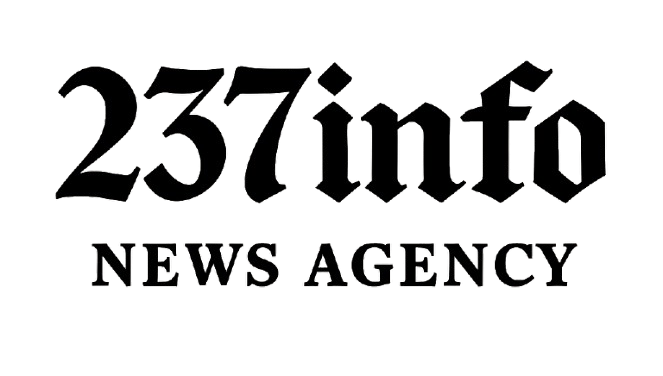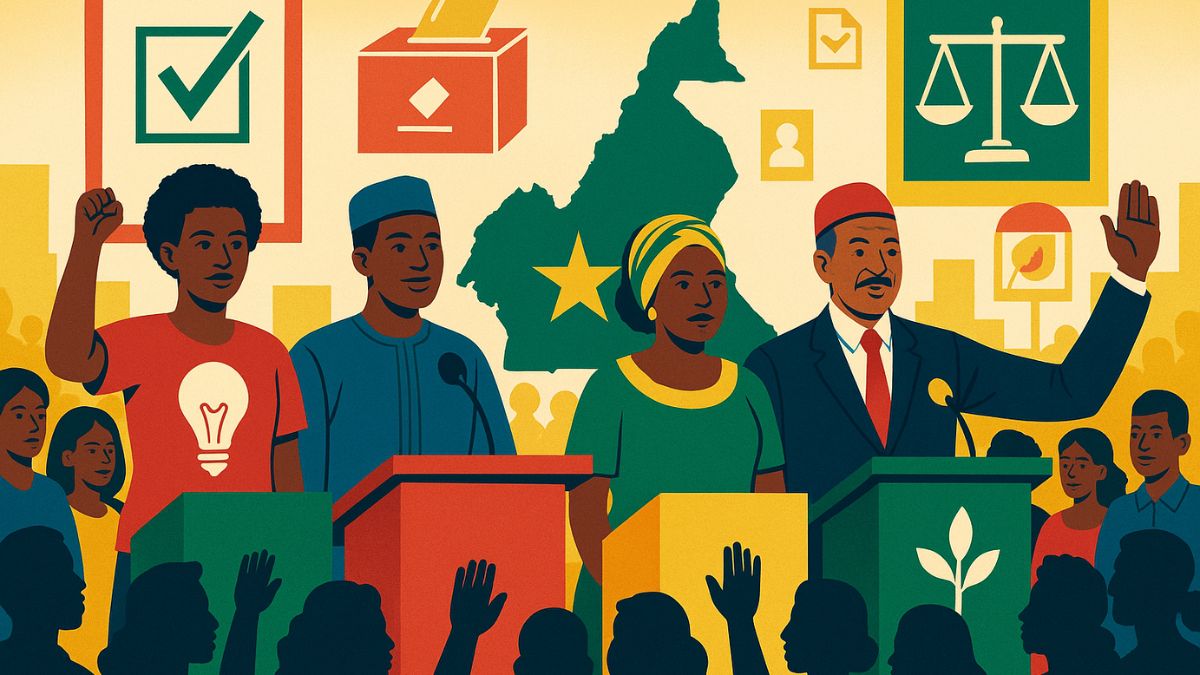Why Cameroon 2025 Elections Matter
Scheduled for October 5, 2025, the Cameroon 2025 Elections will mark a pivotal moment in Cameroon’s political trajectory. With Paul Biya, at 92 years old, seeking potentially another term since extending presidential limits in 2008, the race raises foundational questions about succession, democracy, and national unity.
1. Paul Biya (CPDM, incumbent)
- Background & Incumbency
In power since 1982, Biya is Africa’s second-longest-serving president. His 2008 constitutional amendment removed term limits and extended mandate lengths. - Controversies & Limitations
Rumors about his health have swirled, with supporters maintaining he’s recuperating abroad. Additionally, lawmakers pushed polls past 2025, consolidating Biya’s electoral strength by delaying local and legislative elections. - Platform
Though Biya rarely campaigns on new policies, his pitch emphasizes continuity and stability under the CPDM banner.
2. Maurice Kamto (MRC)
- Profile
A respected academic and lawyer, Kamto came second in 2018 and was briefly detained after contesting results. He heads the Cameroon Renaissance Movement. - Coalition Building
Founded the “Political Alliance for Change” (APC) to back his run, marshaling civil society and political allies. - Campaign Focus
- Electoral transparency: funding control rooms at polling stations, urging coverage in ~28,000 sites
- Institutional reform and decentralization
- Anti-corruption and justice sector overhaul
- Electoral Standing
Polls have placed him ahead of Biya with support consistently between 50–57% (weafrica24.com, cameroonnewsagency.com).
3. Akere Muna (Univers Party)
- Background
A former vice-chair of Transparency International, aged 72, Muna is internationally renowned for anti-corruption advocacy. - Platform Highlights
- Strengthening anti-corruption mechanisms
- Promoting transparent governance
- Building alliances with ~20 civil society groups and political parties
4. Cabral Libii (PCRN)
- Profile
Born in 1986, Libii is a lawyer-turned-politician, recently affirmed as PCRN’s 2025 presidential nominee. - Key Policies
- Youth empowerment and representation
- “Community federalism”: 30% of regional resource revenues stay local
- Open primaries to unify opposition
- Momentum
Seen as a young, reformist alternative; polls rate him second among opposition at ~12–19% support .
5. Eric Essono Tsimi (“We Are the Change”)
- Profile
A 43-year-old academic and writer based in New York. Announces candidacy on civic renewal platform. - Platform Focus
- Youth engagement
- Civic reform
- Seeking alliances with reform-oriented parties
6. Joshua Osih (SDF)
- Background
At 57, Osih leads the Social Democratic Front (SDF), the main Anglophone opposition party. He was nominated in March 2025. - Campaign Priorities
- Bolstering social democracy
- Youth-focused development
- Likely modest electoral backing—his previous bid in 2018 gained 3.3%
7. Other Emerging Candidates
The field is growing: UPC factions have nominated Jean Bahebeck and Dominique Yamb Ntimba; Tomaïno Ndam Njoya of UDC is also in the mix.
8. Major Themes Defining the Campaign
A. Opposition Fragmentation vs Unity
- Multiple rival coalitions—APC (Kamto), ATP (Libii), Calamo (Osih)—highlight disunity, though discussions over consolidation are ongoing.
B. Election Integrity & Security
- Kamto emphasizes voter oversight; Catholic Bishops demand peace and security in conflict-prone areas.
C. Ethnic & Regional Dynamics
- Struggles rooted in Bamileke vs Bulu-Beti tensions, making decentralization and federal approaches politically significant (theguardianpostcameroon.com).
D. Authoritarian Continuity
- State dominance over media, arrests of critics, and election delays deepen fears over fairness .
Election Outlook & National Implications
- Result Possibilities:
An incumbent with entrenched resources but frail health vs an opposition with strong polls and moral appeals. - Potential for Unrest:
High stakes, given security threats and historical tension; stability during elections remains a major concern. - Long-Term Stakes:
This vote could reshape leadership, ease centralization in anglophone zones, and address systemic governance issues.
Conclusion
Cameroon 2025 Elections is more than a routine vote—it’s a referendum on longevity, generational change, governance, and unity. The field includes:
| Candidate | Party / Platform | Key Focus Areas |
|---|---|---|
| Paul Biya | CPDM | Stability, continuity |
| Maurice Kamto | MRC (+APC coalition) | Free & fair elections, decentralization |
| Akere Muna | Univers | Anti-corruption, governance |
| Cabral Libii | PCRN | Youth, federalism |
| Eric T. Tsimi | Independent (“We Are the Change”) | Civic renewal |
| Joshua Osih | SDF | Social democracy, Anglophone inclusion |
As we head into October 2025, Cameroonians will decide whether to embrace another era of Biya’s rule or pivot toward a future defined by reform, transparency, and generational shift.

